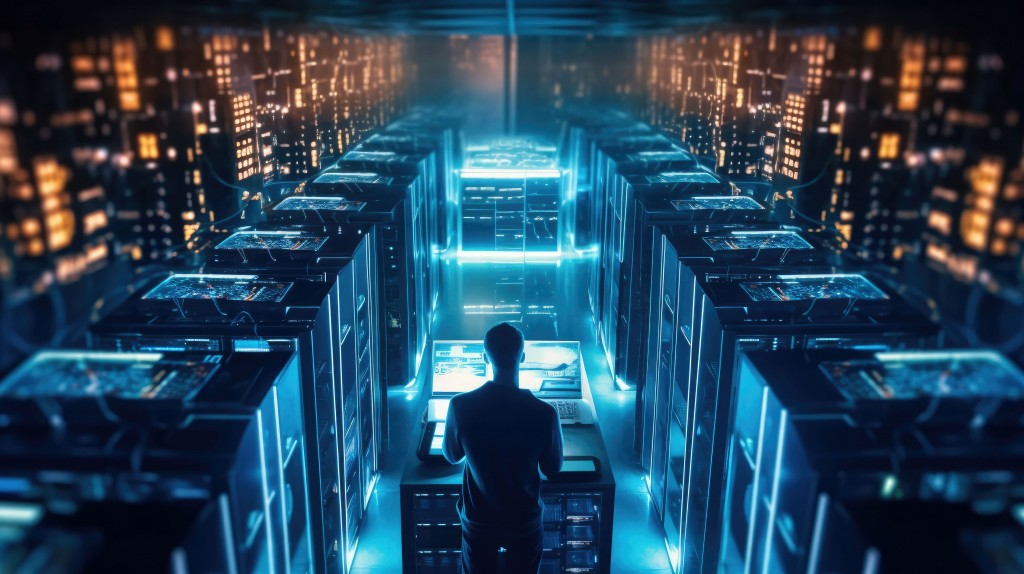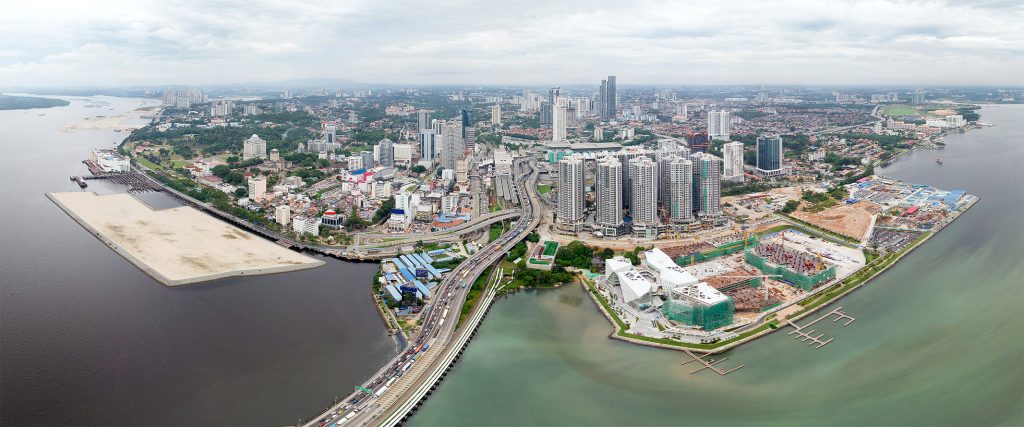The price of data centres may be higher than initially thought
By Joseph Wong
Malaysia is at the epicentre of a digital gold rush. Particularly in Johor, the nation is witnessing an unprecedented boom in data centre construction, attracting billions in foreign investment from global tech giants. The province is on track to host at least 1.6 gigawatts (GW) of data centre capacity, a figure projected to surge to over 5GW by 2035. This makes it one of the fastest-growing data centre markets in Southeast Asia and a potential global powerhouse. While the government confidently touts this as a transformative opportunity to modernise the economy and attract high-paying jobs, a growing chorus of experts is questioning whether Malaysia is truly prepared for the immense and often understated strain these power-guzzling and thirsty facilities will place on its resources.
For years, Malaysia has been striving to escape the economic quagmire of the middle-income trap. Following the late 1990s Asian financial crisis, its industrial growth stagnated, leaving the country a step below its more developed neighbours. The government now sees data centres as a strategic lever to jumpstart its economic engine. Prime Minister Datuk Seri Anwar Ibrahim has expressed confidence in the country's energy surplus, which will fuel these massive projects, while maintaining its position as the world’s fifth-largest exporter of liquefied natural gas (LNG).
Investment, Trade and Industry Minister Tengku Datuk Seri Zafrul Abdul Aziz has echoed this optimism, stating that Johor’s rise as a data centre powerhouse will make Malaysia a “key player in Southeast Asia’s digital ecosystem.” The promise is compelling: these projects will not only bring in foreign direct investment but also indirectly create thousands of high-paying jobs in fields like technology, engineering and data management. This, in the government's view, will attract top talent and foster a vibrant, digital-first economy.
The unseen costs
However, the glossy veneer of progress conceals a number of critical concerns. The true costs of this data centre boom extend far beyond the initial investment and may well be disproportionately borne by the nation’s citizens and environment.
An insatiable thirst for power: Data centres are notoriously energy-intensive. They require a staggering amount of electricity to power servers and, more critically, in a tropical climate like Malaysia, to run energy-guzzling cooling systems that rely on immense volumes of pumped water. According to researchers at Malaysia’s Kenanga Investment Bank, the power demand from these facilities, if it exceeds 5GW by 2035, is more than half of Malaysia’s entire renewable capacity as of 2023. Given that over 95% of Malaysia’s energy in 2022 was derived from fossil fuels, this rapid increase in demand directly clashes with the country's stated climate goals. The fear of power shortages is a growing concern for other industries that rely on a stable and affordable electricity supply to operate their plants.
The strain on water and land: The environmental toll extends to water and land resources. Malaysia's warm, tropical climate makes it an especially poor choice for data centres as they require significantly more water and power for cooling than facilities in cooler regions like Europe. The water usage for these facilities is staggering, placing a heavy burden on a resource that is already under pressure from urbanisation and climate change. Furthermore, the land required for these projects is substantial, with a single 40-megawatt data centre needing land the size of seven football fields. This raises questions about the opportunity cost of the land. The question arises whether it could have been used for more sustainable developments like agriculture or housing.
Overstated job creation: A central pillar of the government’s argument that data centres create thousands of jobs is also facing scrutiny. A report by the American nonprofit Good Jobs First reveals that most data centres only provide 30 to 50 permanent jobs, with the largest ones creating a maximum of 200. These facilities are highly automated, requiring a minimal workforce for maintenance and security. This means that Malaysia could be sacrificing valuable resources for a minimal return on job creation, a stark contrast to the promises that are attracting these investments.
The digital colonialism debate
This disproportionate exchange of a nation’s resources for limited returns has led to a powerful and growing critique. Sofia Scasserra, who researches digital economies at the Amsterdam-based think tank Transnational Institute, has likened the process to digital colonialism. She argued that tech companies are exploiting resources in poorer countries while simultaneously extracting data from their populations to get rich. She draws a powerful historical parallel to silver mining in colonial Bolivia, which enriched Spain but left nothing behind for Latin America.
Malaysia's rush to become a data centre hub is even more striking when viewed in the context of its neighbour, Singapore. In 2019, Singapore, a country that imports both power and water, imposed a moratorium on new data centre construction over concerns that the energy-guzzling infrastructure was straining its limited resources. At the time, data centres were consuming 7% of the city-state’s total electricity. Only after developing strict sustainability guidelines did Singapore cautiously lift the moratorium. In the meantime, Malaysia has stepped in to fill the void, attracting over US$31bil (RM130.97bil) in investments in the first 10 months of 2024 alone. This contrast between Singapore’s measured, resource-conscious approach and Malaysia’s full-throttle expansion highlights the significant gamble the country is taking.
The call for caution
While government officials remain optimistic, experts are urging a more cautious and transparent approach. As the Jakarta-based think tank Energy Shift Institute noted, the sheer volume of unforeseen future demand from data centres complicates the transition to a sustainable energy future. Similarly, there are warnings that these tech companies often try to distract one from the really simple math of energy consumption versus supply.
For now, the country is writing efficiency guidelines and has a policy to let data centres buy clean energy directly from producers. However, without stronger, more enforceable regulations and an objective re-evaluation of the costs and benefits, the risk remains.
Malaysia's pursuit of becoming a digital powerhouse is a bold and ambitious move. It is a gamble that the potential economic growth from data centres will justify the immense and growing strain on their energy, water and land resources. However, the evidence suggests a high-stakes bet with a low probability of a balanced return. The fear of power shortages, the displacement of local industries and the long-term environmental costs raise serious questions about whether Malaysia is overestimating its capacity. The race to be a digital powerhouse may come at the cost of a sustainable and equitable future for its own people, leaving Malaysia with an empty promise and a drained landscape.
Stay ahead of the crowd and enjoy fresh insights on real estate, property development and lifestyle trends when you subscribe to our newsletter and follow us on social media.















































